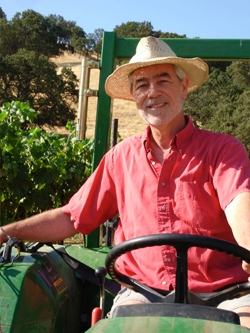 Looking Back: The Achievements of Modern Agriculture 25th Anniversary Essay by 1995 World Food Prize Laureate Dr. Hans Herren
Looking Back: The Achievements of Modern Agriculture 25th Anniversary Essay by 1995 World Food Prize Laureate Dr. Hans Herren
Over the past 25 years and following in the footsteps of the Green Revolution, the major trend in agriculture and food systems has been a constant drive to gain efficiencies and lower prices of key commodities, using an increasing amount of fossil energy to provide inputs such as fertilizers, pesticides and herbicides, as well as for the replacement of human labor. These trends apply mostly to industrialized and newly industrialized countries and has resulted in an increasing use of scarce water resources, soil erosion and loss of fertility, tremendous loss of biodiversity, in particular land races.
With a ratio of 10 Kcal used for every Kcal produced, these trends have also become the number one agent of climate change. This was an obvious blind spot in the drive to prove Malthus wrong. Green Revolution type agriculture has also promoted mono-cropping at the expense of crop and animal genetic diversity, within and across species. This has led to a dual set of problems: significant reduction of environmental resilience in time of greater need, and loss of nutritional value in crops and meat/dairy as well as less food diversity. The rise in diseases such as diabetes is directly related to unsuitable nutrition. While one billion plus people worldwide still go hungry, for lack of access in a world of plenty that produces 4600Kcal/day, or roughly twice the needs, another billion plus are obese.
The global agriculture and food system is definitively broken, and in need of an overhaul, i.e., change of paradigm, as suggested by the multi-stakeholder report "Agriculture at a Crossroads" from the IAASTD. This report looks back 50 years at agricultural knowledge, science and technology and, based on the key findings, provided options for action for a different way forward. It clearly outlines an action plan, which recommends redirecting funding towards research and extension that address small-scale and family farmers' needs and which concentrates on dealing with the root causes of the problems in agricultural and food system sustainability. Although the report lauds the Green Revolution for higher production, it is critical of quick fixes and high input agriculture. It recommends rethinking the old paradigm, and moving towards ecological agriculture, which considers its multi-functionality and the three realms of environment, society and the economy as an integrated framework.
Looking forward
Food production needs to adhere to the basic principle that land should be of constant or improved fertility after each crop cycle, without the use of synthetic fertilizers and other agro-chemicals, all based non-renewable and finite natural resources. In agriculture, we need to think and act long term, as any transition to a new system takes time -- sustainable agriculture is knowledge intensive. The financial resources are not the main issue, given that to date, approximately 1 billion US$ are supporting mostly unsustainable (over)production in a few countries, while the rest of the farmers can't get credit for inputs and have little access to education, information and markets.
The policy actions to be undertaken immediately via a redirecting of the perverse subsidies and an increased share of GDP cover four main areas, as presented in UNEP's "Green Economy" report agriculture chapter for new investments: 1) Participatory agroecological research (soil science, agronomy, crop improvement - emphasizing new crops and appropriate mechanization), education and extension, with emphasis on small-scale farmers and especially women and provide access to information, inputs including insurances and credit and markets; 2) Reducing pre- and on-farm post-harvest losses through education, information and access to innovations such as bio-pesticides and storage technologies; 3) Reducing transport and processing losses, by emphasizing more value-adding in rural areas; and 4) Agricultural management practices, i.e., costs for transition to agro-ecological practices, training, and access to small mechanization.
These policy actions would, by 2050, reduce agriculture's impact on climate change, reduce deforestation by over 50%, reduce land and water use, create some 40 million jobs at the global level, and produce more quality calories per person at the household level (slightly above 2500Kcal, which is well enough for a healthy diet). In order for these investment to provide the expected return, they have to be accompanied by a number of investments in enabling conditions, from better governance to rural infrastructure, such as access to quality education and healthcare, internet, power and water, both for domestic and agricultural use, and food processing facilities in rural areas.


